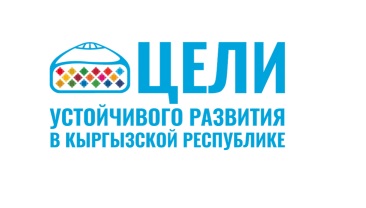
Forum of Women’s NGOs of Kyrgyzstan
Forum of Women’s NGOs of Kyrgyzstan
From August 1 to 3, 2022, the Forum of Women’s NGOs of Kyrgyzstan invited representatives of women’s organizations, women deputies of local keneshes, women activists from Osh, Issyk-Kul, Jalal-Abad and Chui regions to the seminar “The impact of religious fundamentalism on women’s rights and gender equality”. The seminar was attended by 24 women.
The workshop had several goals:
• Increasing the capacity of public women’s organizations, women deputies of local keneshes, representatives of women’s councils and women activists in the field of combating gender-based violence in the name of culture and religion at the local level
• Development of mechanisms to combat gender-based violence at the local level
• Activation of the process of including issues of combating gender-based violence in the programs of socio-economic development of aiyl aimaks, plans and budgets
The workshop participants shared their experiences of resisting religious fundamentalism, which has a negative impact on women’s rights and gender equality. Among the experience, the Participants noted irregular control, informing about extremism, holding public hearings about extremism and terrorism, informing about the secularism of Kyrgyzstan at meetings with schoolchildren, parents, holding seminars on the traditions and customs of the peoples of the republic, theater forums, round tables, foot marche
Akzhol Omorov, a representative of the State Commission for Religious Affairs of the Kyrgyz Republic, shared the methodology of working with religious communities on issues of combating religious fundamentalism. He said that on September 30, 2021, the state policy of the Kyrgyz Republic in the religious sphere for 2021-2026 was adopted. The State Commission works with religious organizations. At present, there are 2,700 mosques in the republic, 2,000 imams, and there are madrasahs for girls. In 2022, the Commission held a 3 day seminar for women in religion.
Akzhol Omorov noted that patient and explanatory work is needed in the field of combating religious fundamentalism, it is necessary to create a dialogue so as not to escalate the situation. He also expressed readiness to jointly develop mechanisms to combat gender-based violence in the name of culture and religion and a joint action plan.
An interesting experience of resistance to religious fundamentalism was presented by Isabelle Marler, a leading specialist in the promotion of universal rights and justice from the Association for the Rights of Women in Development (AWID). In 2021, AWID published the Women’s Rights at Risk report, which provides an analysis of religious fundamentalism that discriminates against women’s rights and promotes violence against women. AWID sensitizes people who make decisions at the UN level through advocacy work. Isabelle emphasized AWID’s research and work with illegal groups that propagate religious fundamentalism. These groups use the language of human rights and are therefore dangerous. AWID explores how governments around the world are involved with these illegal groups and why they are under pressure from them. Isabelle Marler invited everyone to join AWID and work together.
The experience of resistance to religious fundamentalism was presented by colleagues from the countries of Central Asia. Dildora Amirkulova from Uzbekistan noted that Uzbekistan has become more loyal to freedom of religion. And this influenced the growth of radicalism. The experience of Uzbek NGOs in the prevention of religious radicalization is the promotion of the prevention of violent extremism in Uzbekistan in cooperation with the state and civil society through education, dialogue, information, legal and psychological consultations, increasing media literacy of journalists to increase the resistance of vulnerable groups of the population to radicalization.
Orzu Ganiyeva, an expert from civil society in Tajikistan, spoke about the fact that her country is being opposed, but this is not yet a struggle. There is a law on countering extremism. Currently, the following problems are observed – polygamous marriages, suicides among women (135 cases of suicide in the last 6 months), the plight of women with HIV, abandoned wives, preference for boys in higher education, early marriages (34.7%), teenage pregnancy (29.5%).
What are civil society organizations doing to counter religious fundamentalism? A large preventive work is carried out by the Coalition “From Legal Equality to Practical Equality (statistics, alternative reports to the SIDO Committee. A network of CSOs “Life without Violence” has been created, which conducts research on attracting youth participation in preventive work, trainings for religious leaders, and promotes an increase in the level of religious pluralism and awareness of human rights in order to reduce the spread of radicalism among young people.
During the seminar, the Istanbul Protocol (Guidelines for the Effective Investigation and Documentation of Torture and Other Cruel, Inhuman or Degrading Treatment or Punishment) was reviewed in detail in order to require the completion of this Protocol in cases of violence against women on the ground.